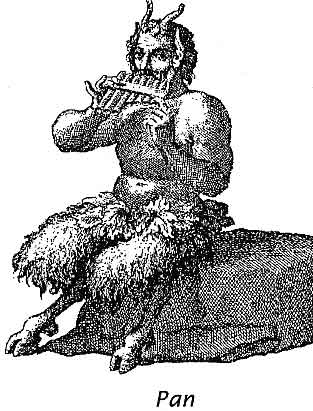The real intellectual that embraces tradition, in its true Whig form, are the

libertarian dialecticians that follow in the Rothbardian tradition. Of these I place the real intellectual bitch who challenges the left; Camille Paglia is in that tradition.The feminist lesbian that fellow feminists & lesbians love to hate. Can't get better than that.
Camille Paglia's Sexual Personae
Camille Paglia's impressive study of the development of Western Culture manages to piss off a lot of intellectuals. Feminist scholars detest Paglia's essentialist argument that women are biologically bound to "nature" by their reproductive powers. Leftists detest her support of capitalism (a la Ayn Rand), which she sees as having freed women from bondage to men. Queer theorists disdain her aligning homosexual aestheticism with some of the most tyrannical eras and arguing that gay men's idolatry of things masculine goes "against nature." Traditional conservatives hrrmmph at her trashing of the most sacred Western institutions--including Church and State--as male attempts to repress and extinguish powerful female forces.
She is never a neo-con anything despite her detractors on the left, but a classical liberal. So you won't find her in the pages of the National Review, rather she is regular contributor to Salon. She has been interviewed by Reason as well as in Playboy. Placing her in the centre of the neo-liberal univesre of Harold Bloom,as compared the othe post-structuralists and deconstructions in the Modern Languages and Cultural Studies departments.The Camille Paglia checklist
There I got to use neo-con and neo-liberal in the same paragraph exposing them as contrary terms.
Here is a taste from one of her Salon columns.
Now on to educational reform, a preoccupation of this column to which so many readers have eloquently responded. I recently finished reading "Worshipping Athena: Panathenaia and Parthenon" (University of Wisconsin Press, 1996), edited by Jenifer Neils, a book blessedly free of the poststructuralist doubletalk and hackneyed political correctness that are rampant in the humanities
This collection of essays shows what scholarly speculation can and should be -- weighing what is known against what is possible or probable. Theory is always tempered by fact, as best as the latter can be determined with evidence so ambiguous and fragmentary. This fine, patient, precise methodology is not only rarely taught these days but has been abandoned wholesale by the most prominent or rather showiest humanities professors of my generation in the elite schools -- for which they have yet to be held accountable by cultural commentators (an increasingly mundane and maleducated lot) in the major Northeastern newspapers and magazines.
My favorite essay was "Athena's Shrines and Festivals" by Noel Robertson, a professor of classics at Brock University in Ontario who has an engaging, pugnacious style of argumentation. There are countless intriguing details, such as that the six voluptuous caryatids (columns in human form) of the Erechtheum's Ionic south porch are carrying either baskets or water jars on their heads, which gracefully support the architrave. Apropos the Doric temple of Athena Parthenos ("the Virgin"), Robertson describes a nearby altar built over natural fissures in the Acropolis rock: "Liquid from the sacrifice was meant to run into the cracks -- perhaps the blood when the victim was slaughtered, perhaps the bile from the gall bladder when it was examined for omens."
Weighing Pausanias' first-hand account, Robertson proposes there was once an impressive, unroofed, walled shrine on the Acropolis that sheltered a well or basin containing seawater: "Whenever the south wind blew, it gave out a sound of waves, a marvelous sign." The fierce statue of Athena Promachos, shown armed and striding into battle, "gave the Athenians a terrible omen in the war between Antony, whom Athens favored, and Octavian, who won." According to Cassius Dio, the statue "turned round to the west and spat blood."
Robertson's etymological analysis of the strange name of Erechtheus, legendary king of Athens, reveals the agrarian ancestry of culture (which poststructuralism so misunderstands because of its blindness to nature). Erechtheus "typifies the threshing," a crucial harvest operation. His name is the noun of the verb erechthô, related to ereikô, which means to "split" or "rend" or "smash": "Its original sphere is 'cracking' or 'bruising' or 'grinding' vegetables, especially legumes." Hence erechthô means "'flail', 'thresh', as with repeated blows," and "Erechtheus" means "Thresher."To "thresh" meant to "smite": Robertson concludes, "The prehistoric threshers who inspired the Erechtheus story were a file of men wielding sticks or some more special implement." I would appropriate this to support my theory in "Sexual Personae," inspired by passages in the early 20th century Cambridge school of anthropology, that sadomasochism, as embodied in the novels of the Marquis de Sade, the erotic poetry of Algernon Charles Swinburne and today's bondage underworld, is an atavistic remnant of ancient nature-cult.
Cheeky very cheeky. See ya just can't disagree with her. I know I don't. I would call her a libertarian feminist, even if she is a classical liberal.
See my
The Monument Builders
Historical Revisionism
Find blog posts, photos, events and more off-site about:
Coulter, Paglia, feminism, libertarian, Rothbard, dialectics, cultural-studies, lesbian, lesbianism, Sexual-Personae, art, pop-culture, gay, homosexual, Apollo,





